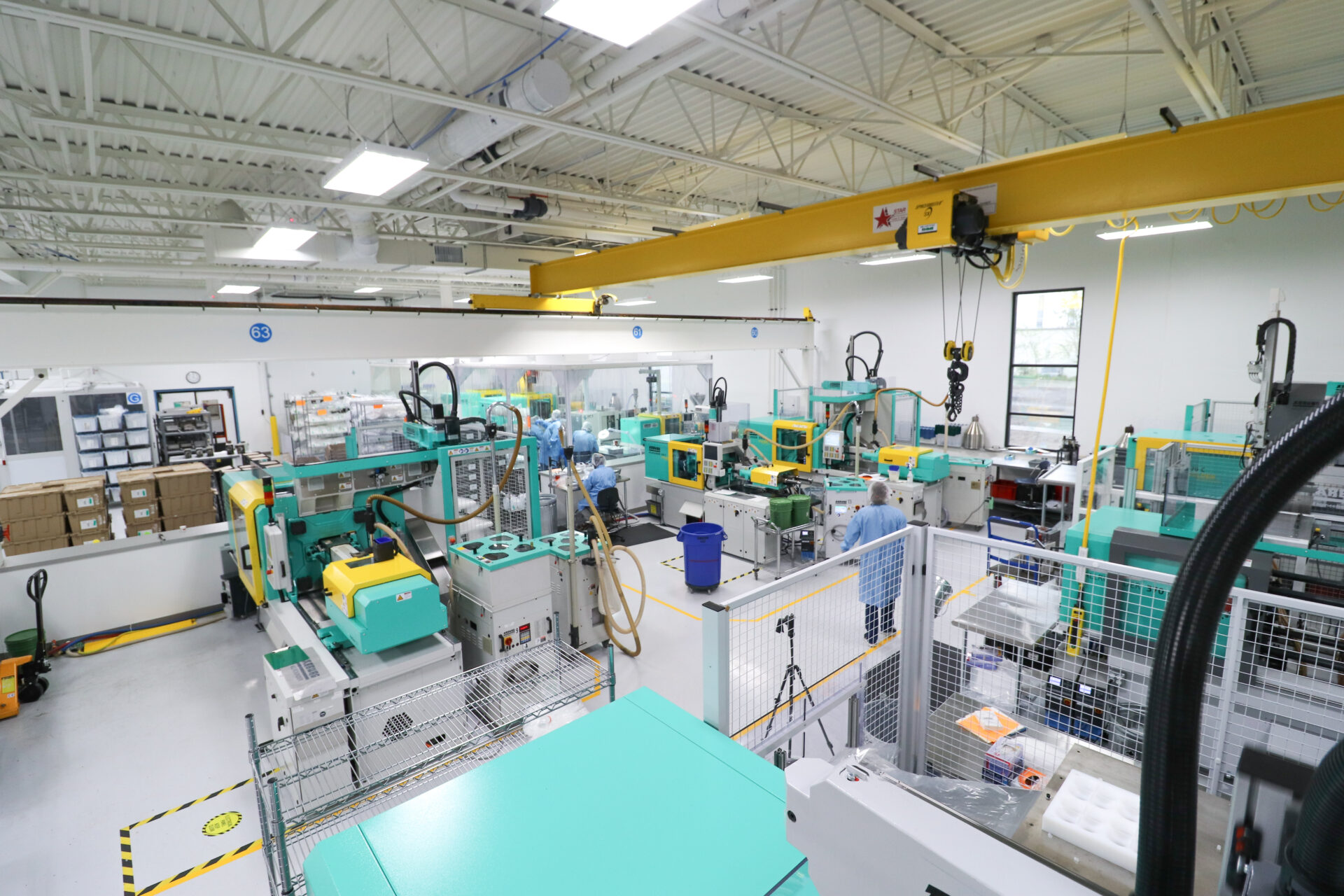Prolonging the materials selection process can later lead to increased project costs, development delays and manufacturing setbacks. And let’s face it – the race for 501k approvals can be brutal. With the right team at your side every step of the way, it can help make this process more expedient and bearable.
Importance of Questions in the R&D Process
When choosing a material for the development of your medical product, there are many factors that play into the decision making. A great medical device injection molding company should ask you an exorbitant amount of questions during the R&D process. Topics involving regulatory concerns, device classification, ideal cost per pound range, characteristics of the product, how it’s handled by the end user and how it gets cleaned. There should be questions surrounding the design tolerances and whether they can be simplified for a lower overall project cost by focusing on design for manufacturability & functionality.
Questions regarding strength, durability, wear-resistance, extreme heat or cold tolerance, or whether it needs to be waterproof or water/chemical/body fluid resistant, will all help to determine whether the original resin needs to have an additive like a glass or mineral powder filler, a UV stabilizer, or one of many other products that can be added to a virgin, medical grade polymers to enhance the material’s properties. Thinking ahead to a post molding consideration is whether or not the product gets printed, has labels applied, and gets assembled, glued or welded together. Some materials perform better than others depending on the post-molding processes necessary.
Sometimes you’ll need to discuss biocompatibility (if the product is implantable). You may also have to consider whether the product needs to be anti-static, static dissipative, or have EMI/RFI shielding properties.
Will you want your manufacturer to add colored concentrate to natural resin at the press and risk having some parts produced slightly off color if the screw, barrel or concentrate delivery system does not work properly, or would you rather spend a little more by having the material supplier compound them together to create a customer color matched material that comes pre-colored to avoid variances during manufacturing?
Early Conversations on Aesthetics
You’ll need to contemplate aesthetic features that the final product should have in order for the best overall results and end-user experience, rather than letting a marketing department decide how the device should look as it’s coming out of the package.
Texture, grip, fingerprint resistance, etc. all need to be discussed ahead of time because it will make a difference in which materials are looked at and whether or not the tool cavities need to be textured for the right effect or material release. Many products that are used in a hospital or doctor’s office where fluid may be present, get what is known as an “over-molded” process that adds a layer of grip and slip-resistant thermoplastic elastomer (TPE) on top of the molded product. That too should be decided early on, so that the process can be done simultaneously to the medical device injection molding stage. For parts that need to be flexible, the differences between using a TPE or Silicone needs to be addressed. Silicone has become a popular choice for some medical components and it lends itself well to sterilization, which is another process that must be determined up front. Does the final product/packaging need sterilization, and if so, by what method?
Choosing the Right Resin Supplier
Finally, there is the question of which resin supplier? It should be a reputable company with a proven history of providing quality, medical-grade polymers that has acceptable lead times, great on-time delivery performance, price breaks at quantities that make sense for the customer, and that has a proven record of being flexible and working with the customer to provide a true win-win partnership.
No resin on the planet can ever be the right one, without first honing in on the best product design. Even more important than the plastic it’s made from, the product design can be critical to a life or death situation with the user. This means, no one usually gets the design right the first time. The design often evolves through several iterations as material flow modeling shows how the material reacts with the design (shrink, warp & cooling rates of the material during the injection molding process), how well all the components fit together for assembly, and ultimately how the final product will function out in the field.
Your product’s success is partly dependent on working with a medical device injection molding partner that excels in the plastics industry and maintains superior skillsets in design, materials selection, clean room manufacturing, assembly, decorating and packaging techniques.

